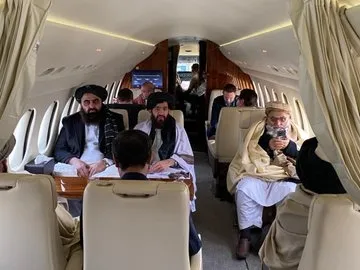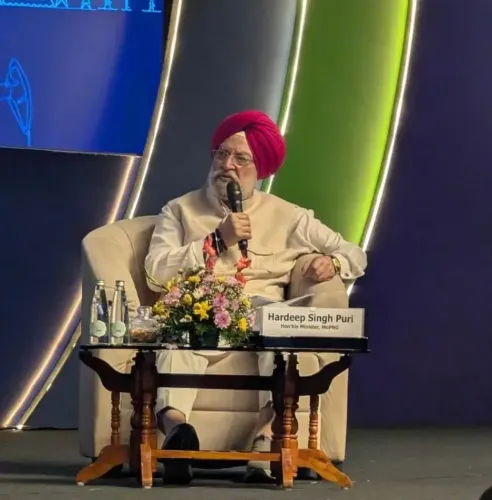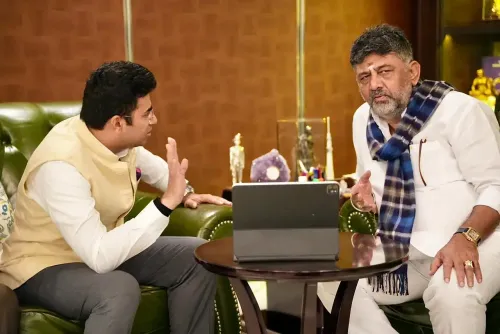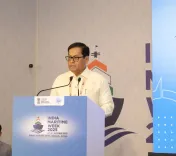Will the Australian Government Prove US Tariffs on Foreign Films are Unjustified?

Synopsis
Key Takeaways
- The Australian government is challenging unjustified US tariffs on foreign films.
- Prime Minister Albanese is actively involved in discussions with US officials.
- Restoring trade talks with the EU is a priority for Australia.
- The government's stance reflects a commitment to fair trade practices.
- Negotiations on agricultural exports are crucial for both sides.
Canberra, May 6 (NationPress) The re-elected Labor Party government of Australia is set to argue that the US tariffs on films produced outside its borders are “unjustified,” according to a senior minister.
Amanda Rishworth, the Minister for Social Services, stated on Tuesday that the government’s “entire team,” including Prime Minister Anthony Albanese, intends to present a “very compelling case” to the US against the recently imposed tariffs following Labor’s significant victory in Saturday’s election for the 48th parliament.
“These tariffs are simply unjustified,” Rishworth, who is still part of Albanese's cabinet from the 47th parliament but whose role in the new government remains to be determined, shared during an interview with Nine Network television.
On Monday, US President Donald Trump declared a 100 percent tariff on films made outside the US, as reported by Xinhua news agency.
In a press briefing in Canberra on Monday, Albanese revealed that he had a conversation with Trump after the election where they touched upon the topic of tariffs.
Minister for Foreign Affairs Penny Wong remarked on Tuesday that the US administration will be informed of the re-elected government’s disapproval of the film tariffs.
“We will certainly communicate our stance regarding this issue to the US administration,” Wong, who is expected to retain her portfolio, conveyed to Nine.
In a different interview on Tuesday morning with Australian Broadcasting Corporation radio, Wong emphasized that resuming discussions with the European Union (EU) on a free trade agreement is a vital aspect of Australia’s trade diversification strategy.
“As a trading nation, we should avoid trade barriers, as they are detrimental to our economy. It’s a form of economic self-harm, so we will engage with the EU and other partners,” she stated.
Negotiations for the trade agreement with the EU fell through in 2023 due to disagreements regarding Australian agricultural exporters' access to the European market.
Labor announced in April that they would restart discussions with the EU if they won the election.
According to reports from News Corp Australia newspapers on Tuesday, Albanese is willing to eliminate Australia’s luxury car import tax from the EU in exchange for improved access to agricultural exports.









